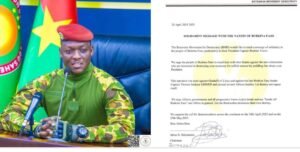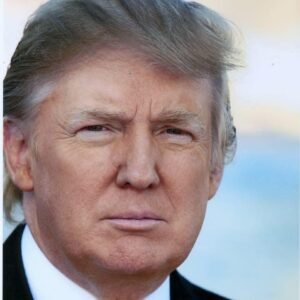Outsider’s Perspective 1: The African Union (AU) Diaspora – Under Represented
Editors note: This series is being written by a non-Muslim artist and businessman who has, through his actions, demonstrated a keen ability to grasp and distill issues on a global scale. He is not a member of the African Diaspora, but his vision and actions relating to peace education put him squarely in the middle of issues relating to the future of the AU. We are happy that he accepted our invitation to write a short series of articles based on his “Outsider Perspective”.
Perspective 1 –
A few years ago, Sheikh Musa Drammeh introduced me to Djibril Diallo, who is now the President and CEO of the African Renaissance and Diaspora Network (ARDN), one of the leading organizations representing the interests of the African Union Diaspora. To be clear, there are many Diaspora organizations worldwide doing great things. (Visit: www.ardn.ngo)
The AU Diaspora is a population double the size of the United States, or ~10% of the world. When combined with the 1.4 Billion people living on the continent, the AU as a whole represents almost 30% of humanity.
Indeed, Africa is still recovering in many ways from its colonial past. While the scourge of slavery has indelibly left its mark around the world and continues to (credible reports list the number of slaves at greater than 40 Million worldwide, the most in human history!), other events still hinder Africans from realizing their full potential. Indeed, some of these challenges were purposefully and maliciously set upon the African Continent by those who attended the Berlin Conference in 1884. It was the goal of that conference to cripple Africa’s ability to achieve it’s potential.
As for the Continent itself, those 1.4 Billion humans live in the most conflict-ridden part of the world with 60% of the population under the age of 30! The fastest growing portion of the population are newborns and Africa is expected, by 2050, to have more employable people than all of China and much of the rest of Asia combined. Besides that, Africa sits on an incredible wealth of natural resources and many countries have healthy monetary reserves. Surprisingly, though, many of these significant reserves are not freely accessible by the nations that own them due to longstanding international throttles that date back to colonial control of Africa. While that is certainly a fertile topic for discussion, it is not the focus for this article, and is obviously laden with political “stuff”.
The AU Diaspora is one of the six regions of the African Union (North, South, East, West, Central & Diaspora) and has the same rights as the other five AU regions including the right to bring things to the AU for consideration and voting. The Diaspora includes all people who have ever left Africa and their families and, specifically, the descendants of slaves taken from the African Continent.
Unfortunately, the Diaspora, which does not appear to be organized other than into largely separate groups and NGO’s, does not have any formal presence at African Union General Assembly meetings and, therefore, is under-utilizing a historic opportunity to actively and positively participate in important matters relating to and facing the AU. It’s a weird spin on taxation without representation, but in this case it’s more akin to, “recognized rights without representation”. The Diaspora rights are already established and defined, but none of the ~750 Million people globally have had representation as a body to formally participate. It’s an interesting conundrum.
It has been said by many prominent African leaders, Ambassadors, and statesmen (read “human”, not “man”) that the success of the AU going forward is inextricably linked to the involvement of the Diaspora. To be sure, as ARDN and other organizations regularly prove, this involvement will continue to bring benefit to Africa with or without a formal seat at AU HQ, but the equation does not appear to be optimized, nor is the diversity and resources of the Diaspora represented formally in a way that best serves both parties.
Nor is there a scaled ability to access, inform, and involve the Diaspora worldwide. Or is there? Certainly, technology is capable of organizing and distributing information to the masses and providing some sort of registration and “virtual organization” management capability. But there appears to be a lot more organizational and political work that needs to occur on the world stage to establish and propagate those tools and realize that “seat at the table” for the Diaspora.
Which brings me back to Djibril Diallo. To be fair, and not surprisingly, formalizing Diaspora participation in the AU is not a stated goal of the ARDN, but my perspective is that the highly visible and focused activities of the ARDN and Mr. Diallo’s leadership and vision exemplify what is possible when resources and actions are aligned. A path to bring Diaspora value back to the Continent is not only being paved, but goods are flowing. Efforts like this must be put on steroids and be complemented by formal representation at the highest levels.
Accomplishing anything on the world stage necessarily calls for vision, leadership, commitment, representation, and an ability to align a large number of compasses while providing enough energy to start a shared resonance.
It occurs to me that maybe it’s time to explore leveraging technology advances to start filling in the gaps. The most obvious gap is to establish a representative body/organization and to start “registering” the nearly 750 million Diaspora members into enough of a functional group that their voices can be heard and their assets brought to bear. In short, if the involvement of the Diaspora is crucial to the “best case” scenario for the AU, then more thought and effort needs to be focused on how to formalize that.
From my outsider perspective, I have seen examples from around the world where the combination of technology and the involvement of remote citizens or emigrants (African or other) can be seen as a threat to the status quo in a country. It is hard to take a definitive position universally as to whether this is a good or bad thing. It has the ability to be either or both. In short, what this distills down to is that there may be certain groups that object to (or are fearful of) formalizing the involvement of the Diaspora despite what appears to be an acknowledgement on the part of the AU to do so. I’m not really sure how to adequately address this point except to say that there are a couple principles that are, or should be, guiding truths. First is that human rights must be paramount. Second is that it is nearly impossible to close Pandora’s box. Technology and all the implications are already present and our descendants will need the benefit of all of it to prepare for and address the significant challenges that they will inherit. Welcome to the 21st Century. We must all raise our game to protect the future of humanity and respect the children to whom this century belongs. I believe, too, that the involvement of the Diaspora will be a blessing to the people of Africa. And, therefore, to the world. It is doubtful that detractors will be able to make arguments that outweigh the benefits to the AU.
I have seen the quality of discourse and felt the positive energy at ARDN-hosted events at the UN General Assembly and have followed the ongoing efforts to drive improvements to the long-term picture for the AU. I have also become familiar with several other Diaspora-led NGO’s and initiatives. One can only guess at the results if the resources of the Diaspora as a whole become better organized and even more effective in managing matters with and on behalf of their brothers and sisters on the Continent.
An interesting example is Claudette Colvin (again, much more about her in a future installment).
Here is a woman that, through her courageous actions at 15 years of age, greatly impacted the American Civil Rights Movement, yet she is relatively unknown in the AU and even within the Diaspora. It was her arrest that catalyzed the strategy leading directly to Rosa Parks, the Montgomery Bus Boycott, and subsequent events. It was her lawsuit that went up to the United States Supreme Court and changed the law. It was her example that inspired strategic action in the American civil rights movement and accelerated the timeline. Having said this, I am woefully aware that her story is not taught like this in schools even here in the United States and it is my sincere hope that this changes around the world.
When viewed in the altogether historically correct light of accelerating the civil rights timeline, it needs to be realized that Claudette Colvin literally saved lives! Furthermore, since the Diaspora specifically includes the descendants of slaves, Claudette Colvin literally saved Diaspora lives!
Claudette Colvin should be celebrated throughout the US and African Continent, schools should be named for her, and she should become as important as Rosa Parks was/is in the United States. Interestingly, I have found no lack of knowledge of Rosa Parks from people all over the world, but it remains a narrative that was produced specifically to gain maximum traction for the civil rights movement at the time and never updated with underlying substance and context. It’s time to change that! And recognizing and honoring Claudette Colvin provides an enormously powerful and beneficial way to do that.
Wouldn’t it be amazingly appropriate for the “AU Diaspora Region” to bring a Motion to the AU to honor this woman while she’s still alive? This can certainly be done through sponsorship by any member nation of the AU, but it is telling that, as of today, it would need to be done “on behalf of” the Diaspora instead of “by” the Diaspora.
I would submit that it should be done one way or the other and that in this case, much like the case for defining and accelerating peace education in the AU (which is specifically called for in Aspiration #4 of Agenda 2063), time is truly and defensibly of the essence.
So, Kudos in advance to the African Country with the vision, desire, and organization to be first to formally raise the issue of honoring an extremely worthy Diaspora member within the halls of the African Union. And further kudos to the first group, wherever they may be in the world, to recognize the importance of and celebrate the opening of a school bearing the name of Claudette Colvin. There is great power in a symbol.
It is, indeed, the act of standing up for our human rights that is at the cornerstone of making things better, especially in today’s evolving world, and especially in Africa, the most conflict-ridden part of the world. There are surely many examples of this fact, but maybe none more appropriate, poignant, or timely as the Claudette Colvin story.
Finally, the Diaspora, along with their partner regions should work diligently together to address the gap in representation so that beneficial actions, like honoring Ms. Colvin, and certainly many other very impactful items, can be more easily and effectively coordinated with the representation and contribution that is warranted and, it appears, desired by all. Addressing this issue will lead to a better world faster.
Now I’ll humbly and gracefully take that figurative trip back from the Bronx, over the GW Bridge, and an hour and a half South. Until next time. Peace. Out.
Peter R. Rogina
Co-creator of Peace Lights
Founder of Project Peace Lights
(732) 742-6001 mobile
www.projecpeacelights.org







